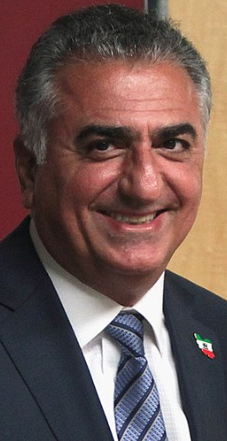March 17, 2023
The editors of the Iran Times have selected the protesters in the streets as the Newsmakers of the year 1401 within Iran and Masih Alinejad as the Newsmaker of the year in the diaspora.
Each year, the editors select the Newsmakers inside Iran and inside the diaspora, referring to the people who have had the most impact on the news for good or ill. It is not a judgment of quality, but recognition of impact-just as Time magazine over the years chose Adolf Hitler, Joseph Stalin and Ayatollah Khomeini as Man of the Year.
As runners-up, the editors named Shervin Hajipour, author of the Grammy Award-winning song “Baraye,” within Iran and Prince Reza Pahlavi within the diaspora.
There wasn’t any debate over the selection of the protesters who have turned out on the streets of cities all over Iran every day but eight since last September, shaking the regime establishment to its very foundation.
Although the scale of the protests has declined substantially and the numbers of people in the streets are now quite small, the protesters have already accomplished their goal by convincing the establishment that it has lost legitimacy in the eyes of the public. Most of the establishment has ceased saying the opposition is inconsequential and has instead started debating what the regime can do to regain the support of the public.
While the scale of the public protests is much lower now than in October and November, the fact that some people appear in the streets every day to shout their opposition to the regime is impressive. The 1979 revolution involved huge protests, but they were held every 40 days, not every day
Within the diaspora, the editors selected the controversial Masih Alinejad as Newsmaker of 1401. She offends some who see her as a self-promoter. But the fact is, she spent the last decade promoting opposition to mandatory hejab as the core issue of opposition to the regime-and now she has prevailed.
Along the way, she has gained the enmity of the Islamic Republic-the individual who most offends the establishment, which clearly wants to eliminate her. Last year, the US government charged four Iranians with trying to kidnap Alinejad from her Brooklyn home, take her by boat to Venezuela, from where she could be flown to Iran for presumed execution. That failed. And weeks ago, the US government charged four other men with plotting to shoot her dead in Brooklyn. Alinejad appears to top the regime’s enemies’ list.
As runner-up inside Iran, the editors named singer/songwriter Shervin Hajipour, who faces possible prison time for a song that has become the anthem of the protest movement. The song, “Baraye,” meaning “For,” was composed by Hajipour by collecting the chants he heard protesters shouting in the streets, so that the song is a list of the reasons the protesters are in the streets.
What’s more, the song won a Grammy award. First Lady Jill Biden announced that Hajipour won the Grammy’s new “Song for Social Change” special merit award, saying, “This song became the anthem of the Mahsa Amini protests, a powerful and poetic call for freedom and women’s rights.”
Within the diaspora, the editors named Prince Reza Pahlavi as the Newsmaker of the Year. For four decades, he has been a voice of opposition to the revolutionary regime, but only in the last few months has he won widespread support, even among non-monarchists, as he has joined hands with many other regime opponents across the political spectrum, to unite the expat opposition as never before.
It will be noted that all those named by the editors as Newsmakers gained that rank by virtue of their opposition to the regime. In the past four decades, most Newsmakers have included figures within the regime who had their hands on the throttles of power. The selection this year of regime opponents exclusively suggests that the throttles of power have shifted significantly.


